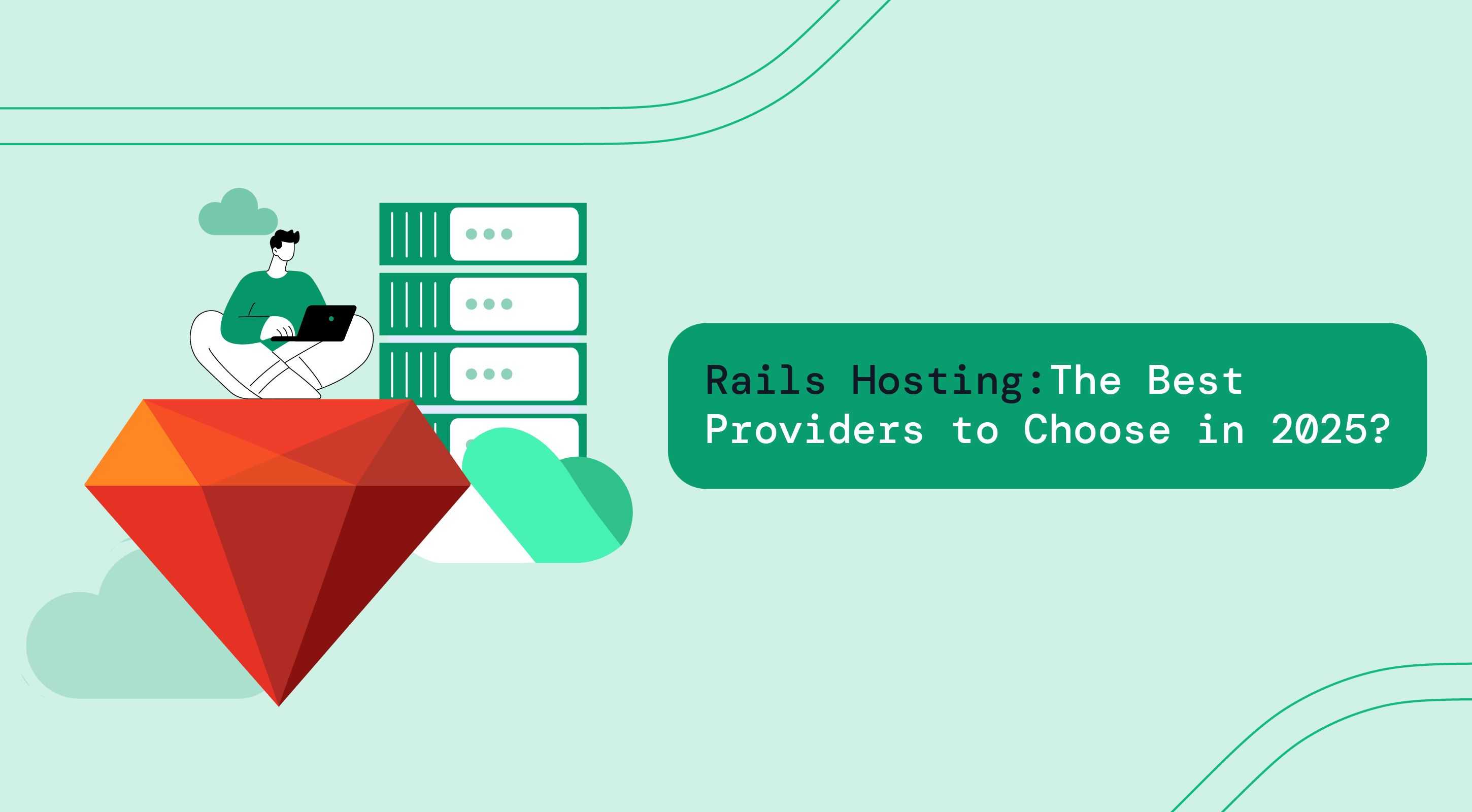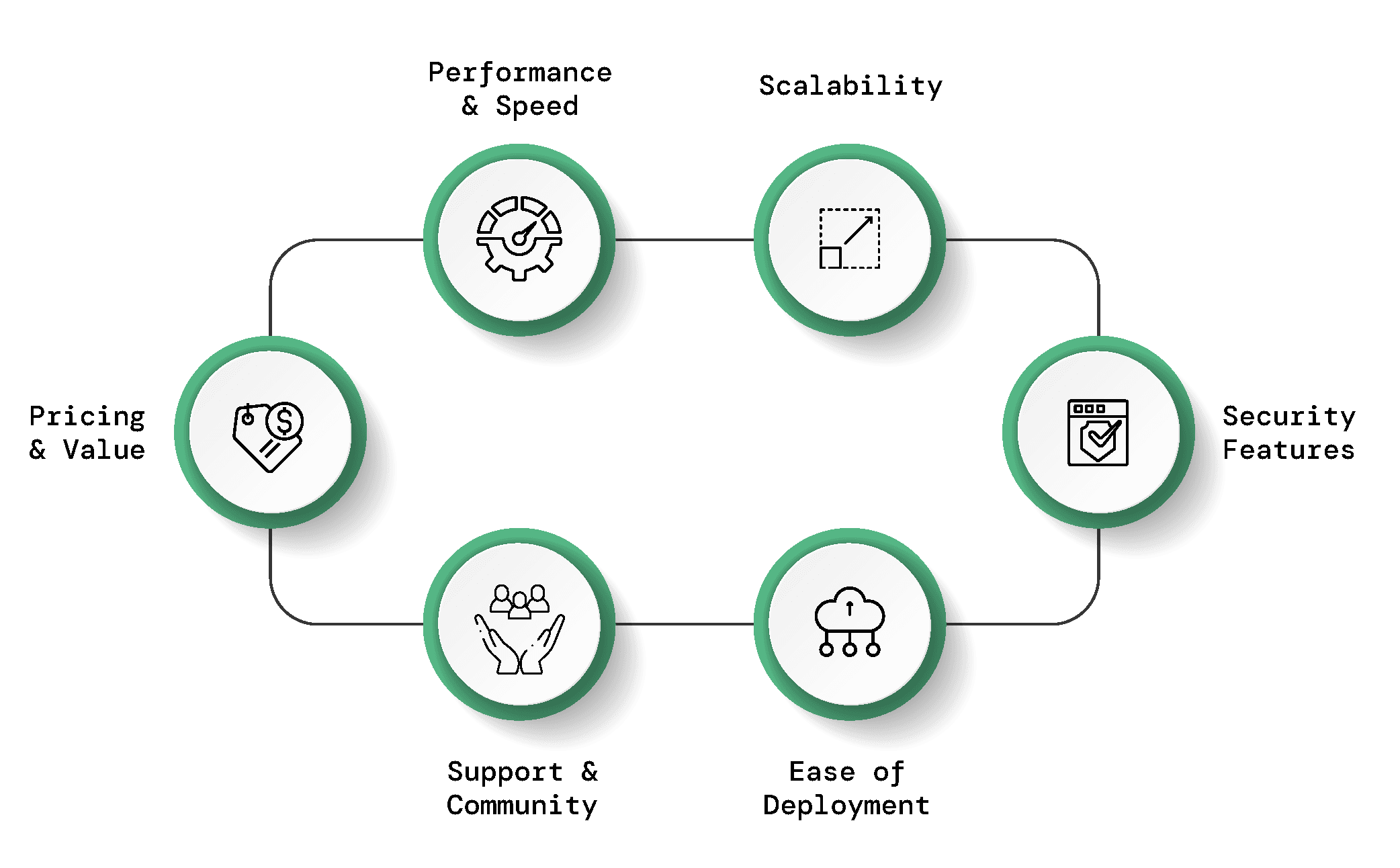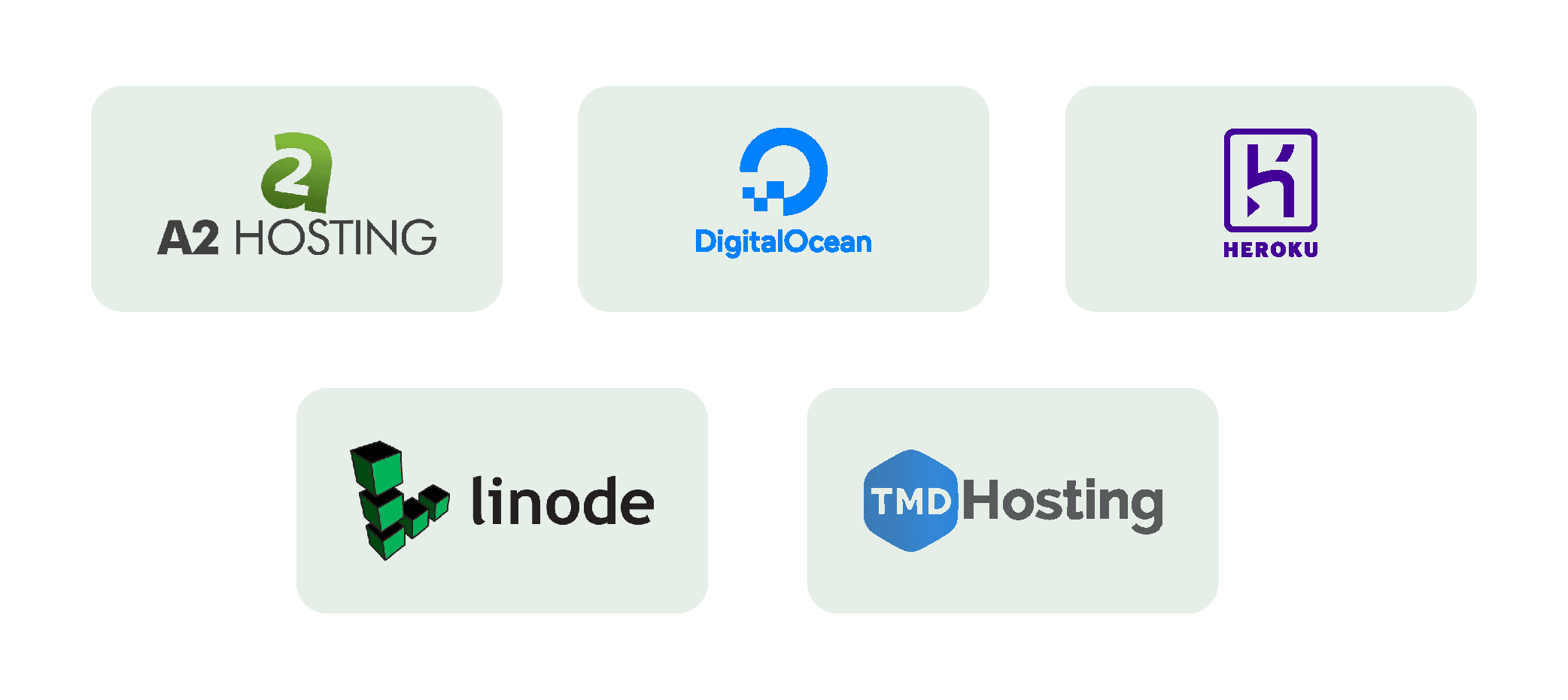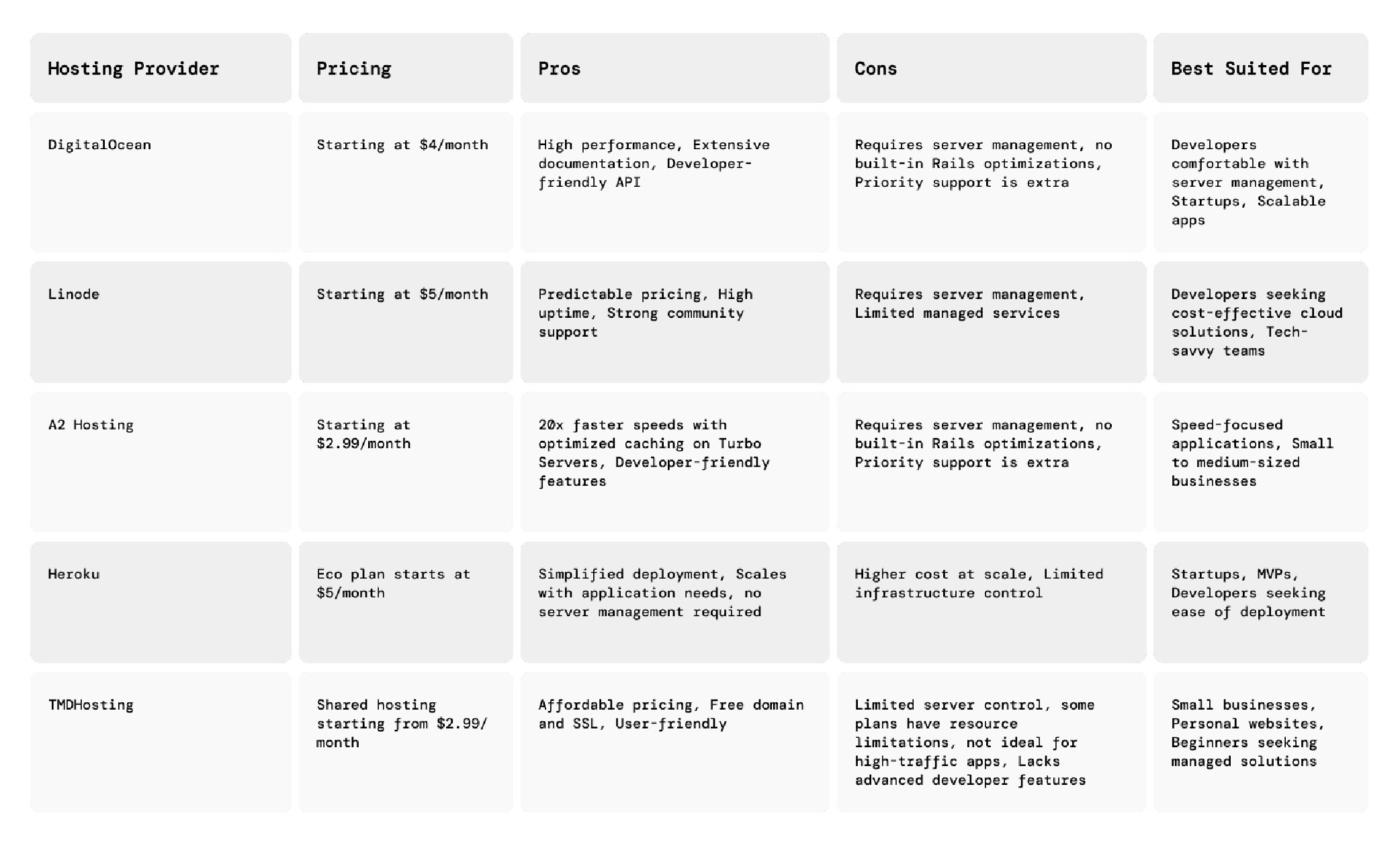Top Hosting Platforms for Ruby on Rails in 2026
Explore the top Ruby on Rails hosting providers in 2026 and find the perfect fit for your application.

Pichandal
Technical Content Writer

Ruby on Rails is a powerhouse for building web applications, known for its elegant syntax and developer-friendly approach. But to truly unlock its potential, you need the right hosting provider backing it up.
A great Rails hosting provider isn’t just about servers and storage, it’s about offering an optimized environment where your apps can run smoothly, scale effortlessly, and stay secure.
With so many ruby on rails hosting options out there, finding the perfect balance between speed, reliability, and cost can feel overwhelming.
To help you out, in this article, we’ll break down what makes a hosting provider ideal for Rails applications, what factors to consider, and which providers stand out in 2026. By the end, you’ll have a clear path to choosing the best hosting solution for your project—whether you’re a startup, an enterprise, or an indie developer.
Rails Hosting Provider: How to Find the Right Fit?
Not all hosting providers are built alike, especially when it comes to supporting Ruby on Rails applications.
Rails has specific requirements, from performance optimization to seamless deployment, and choosing the wrong host can lead to bottlenecks, downtime, or security risks.
To ensure smooth ruby on rails applications development and scalability, here we list the key factors to evaluate:

-
Performance & Speed – To ensure your app runs smoothly, it is critical to choose hosting providers with low server response times, built-in caching, high uptime and Rails-optimized infrastructure.
-
Scalability – Your hosting should be able to handle traffic spikes and future growth without requiring constant manual adjustments. Besides, flexible resource allocation and auto-scaling features can also make a big difference.
-
Security Features – A reliable provider will offer SSL certificates, DDoS protection, automated backups, and firewalls to keep your Rails application secure against cyber threats.
-
Ease of Deployment – It is important to look for support for Capistrano, Docker, CI/CD pipelines, and Git-based deployments from your hosting provider to simplify and speed up your deployment process.
-
Pricing & Value – As costs vary widely between providers, one shouldn’t overlook the balance of features, performance, and support with your budget. Some hosts cater to startups with affordable plans, while others provide enterprise-grade solutions.
-
Support & Community – Choosing a provider who offers 24/7 customer support, Rails-specific expertise, and an active community are essential for troubleshooting challenges and maintaining optimal performance of your application.
By keeping these factors in mind, you can find a ruby on rails web hosting provider that not only supports your Rails application today but also grows with it in the future.
Top Ruby on Rails Hosting Providers in 2026

1. DigitalOcean
DigitalOcean is a popular cloud hosting provider known for its developer-friendly approach, scalability, and high-performance virtual machines. With scalable Droplets, SSD storage, and global data centers, it provides a solid foundation for hosting Rails applications.
While it requires some server management, its user-friendly control panel, extensive documentation and versatile API make it ideal for developers seeking customization and control.
Pricing
DigitalOcean offers a pay-as-you-go pricing model, with basic Droplets starting at $4/month.
Advantages
-
Supports Ruby on Rails with SSD storage, scalable compute, and PostgreSQL/MySQL databases.
-
Easily scale vertically or horizontally as traffic grows.
-
One-Click App & Droplet Templates help streamline Rails setup.
-
Extensive Rails-focused guides and community support.
Disadvantages
- Users must handle configuration, updates, and maintenance.
- No built-in Rails optimizations like auto-scaling or zero-downtime deployments.
- Priority support requires an additional paid subscription.
Best Suited For?
- Developers and teams that are comfortable with server management.
- Startups and small businesses looking for scalable, cost-effective cloud hosting.
- Applications that need high performance without managed hosting constraints.
2. Heroku
Heroku is a fully managed Platform-as-a-Service (PaaS). With zero server management, built-in scaling, and an ecosystem of add-ons, it’s the perfect choice for developers who want to hit the ground running without worrying about infrastructure.
Pricing
Heroku paid plans start at $5/month for basic dynos.
Advantages
- Simple Git-based push-to-deploy system with minimal setup.
- Handles scaling, maintenance, and security updates automatically.
- One-click integrations for databases, monitoring, caching, and more.
- Intuitive CLI, easy rollbacks, and built-in CI/CD support.
Disadvantages
- Less control over infrastructure compared to cloud providers like AWS or DigitalOcean.
- Apps on the free tier go to sleep after inactivity, affecting response times.
- No Native File Storage
Best Suited For?
- Projects that require rapid prototyping, CI/CD integration, and seamless scaling.
- Developers who want to focus on coding rather than managing servers.
- Startups looking for a fully managed Rails hosting solution.
3. Linode
Linode, now Akamai, is a developer-focused cloud hosting provider known for its affordable pricing, high-performance virtual machines, and robust infrastructure. With support for custom server configurations, Rails-optimized stacks, and flexible scaling, Linode is an excellent choice for developers who prefer full control over their hosting environment.
Pricing
Linode offers a pay-as-you-go pricing model, starting at $5/month for a basic shared CPU instance.
Advantages
- Full server control allows complete customization for Rails environments.
- SSD storage, dedicated CPU options, and global data centers ensure fast response times (200-350ms).
- Reliable Uptime of 99.99% SLA ensures high availability.
- Supports Developer-Friendly Tools such as Stack Scripts, Docker, Ansible, and Capistrano for easier deployment.
Disadvantages
- Requires manual configuration since there are no built-in Rails-specific optimizations like Heroku’s push-to-deploy system.
- No managed Rails hosting, meaning server setup, updates, and security are the developer’s responsibility.
- Limited add-on services compared to fully managed providers, with fewer built-in integrations for databases and caching.
Best Suited For?
- Developers who prefer full control over their hosting environment.
- Businesses that seek predictable costs with high performance.
- Rails projects that need dedicated resources but don’t require a fully managed solution.
4. TMDHosting
TMDHosting is a budget-friendly, fully managed hosting provider that supports Ruby on Rails out of the box. It offers pre-configured servers with SSD storage, daily backups, and 24/7 technical support, making it an attractive choice for developers who wants to deploy and scale their Rails apps effortlessly.
Pricing
TMDHosting offers shared, VPS, cloud, and dedicated hosting plans, with shared hosting starting at $2.99/month.
Advantages
- Fully managed hosting takes care of server setup, maintenance, and security updates, allowing developers to focus on their applications.
- Pre-configured servers with Rails support eliminate the need for manual setup, making deployment easier.
- Automatic daily backups and free SSL enhance security and data protection without additional effort.
- 24/7 technical support ensures assistance is available whenever needed, which is crucial for troubleshooting Rails-related issues.
Disadvantages
- Limited control compared to VPS or dedicated hosting, restricting advanced customizations for developers who prefer full server access.
- Performance on shared hosting may vary due to resource allocation, potentially affecting speed during high-traffic periods.
- Fewer developer-centric features compared to platforms like Linode or DigitalOcean, which offer more flexibility and customization options.
Best Suited For?
- Startups and small businesses looking for an affordable, fully managed Rails hosting solution.
- Developers who prefer hassle-free setup without configuring servers manually.
- Projects that require strong support and automatic backups for reliability.
5. A2 Hosting
A2 Hosting is a performance-driven hosting provider known for its Turbo Servers. With pre-configured Rails environments, SSD storage, and developer-friendly features, A2 Hosting strikes a balance between speed, affordability, and flexibility. With which, it provides a solid hosting solution with managed and unmanaged VPS options for different needs.
Pricing
A2 Hosting offers multiple plans, including shared, VPS, and dedicated hosting for Ruby on Rails applications. The Shared hosting starts at $2.99/month.
Advantages
- Offers up to 20x faster speeds with optimized caching on Turbo Servers.
- Unmanaged VPS plans provide full root access for complete server control.
- Free SSL, DDoS protection, and automatic backups ensure strong security.
- Supports PostgreSQL, MySQL, SSH, and Git integration, making it Rails-friendly.
Disadvantages
-
Does not offer one-click Rails deployment, so setting up a Rails app requires manual configuration.
-
Managed VPS and dedicated plans provide convenience but are more expensive than some alternatives.
-
Shared hosting lacks full Rails support, making it unsuitable for production applications.
Best Suited For?
- Developers who want full control over their Rails hosting environment.
- Businesses that are looking for a performance-optimized hosting solution with strong security.
- Rails apps that require high-speed servers and scalability beyond shared hosting.

*Note: Pricing and features are subject to change. It's advisable to check the respective hosting providers' official websites for the most current information.
Final Words: The Best Rails Hosting Matters the Most
The right Ruby on Rails hosting provider can make all the difference in your app’s performance, scalability, and overall developer experience. While the wrong one? It leaves you battling downtime, slow responses, and unexpected roadblocks.
Having spent 19 years in the world of Rails development, we’ve seen it all—startups scrambling to scale, enterprises fine-tuning performance, and teams stuck with hosting that just doesn’t cut it.
Choosing a provider isn’t about chasing big names; it’s about finding a solid foundation that fuels your app’s growth and keeps it running smoothly. To make that decision easier, in this article, we’ve put together the top 5 Rails hosting providers to help you cut through the noise and pick a hosting provider that truly fits your needs, budget, and technical expertise.
If you need expert guidance in choosing the best web hosting for your Rails application or any other Ruby on Rails needs, our consulting team is here to help. Get in touch today!



